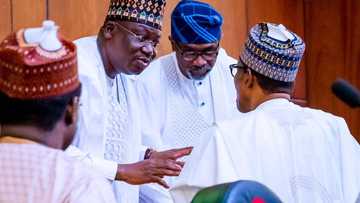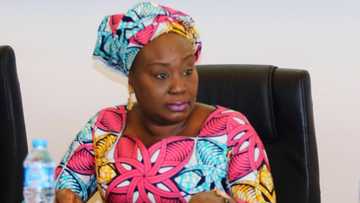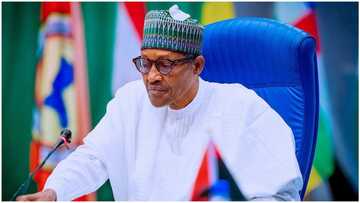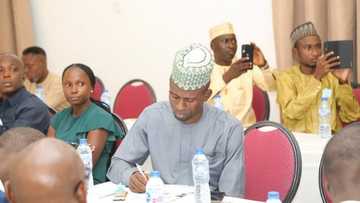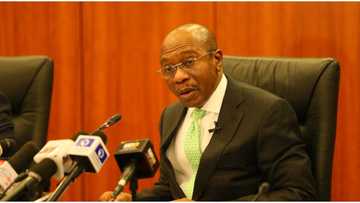Objectives of the Electricity Bill, 2022 and the Need for Stakeholders Support by Gabriel Suswam
Editor's note: Mr. Gabriel Suswam, a former governor of Benue state and currently, serving senator representing Benue North East constituency, writes on the objectives of Electricity Bill, 2021 (now Electricity Bill, 2022) which he sponsored in the upper chambers of the National Assembly, especially in his capacity as the chairman Senate committee on power.
PAY ATTENTION: Click “See First” under the “Following” tab to see Legit.ng News on your Facebook News Feed!
On Tuesday, September 28, 2021, the “Electricity Bill, 2021 (now Electricity Bill, 2022), sponsored by Senator Gabriel Suswam, chairman, Senate committee on power passed second reading in the Nigerian Senate and was referred to the Senate committee on power for further legislative action. The formulation of the bill and its consequent introduction in the Senate was preceded by a rigorous process involving the industry-wide appraisal of extant operational and statutory lapses confronting the Nigerian Electricity Supply Industry (NESI) since the conclusion of the privatization exercise in 2013.
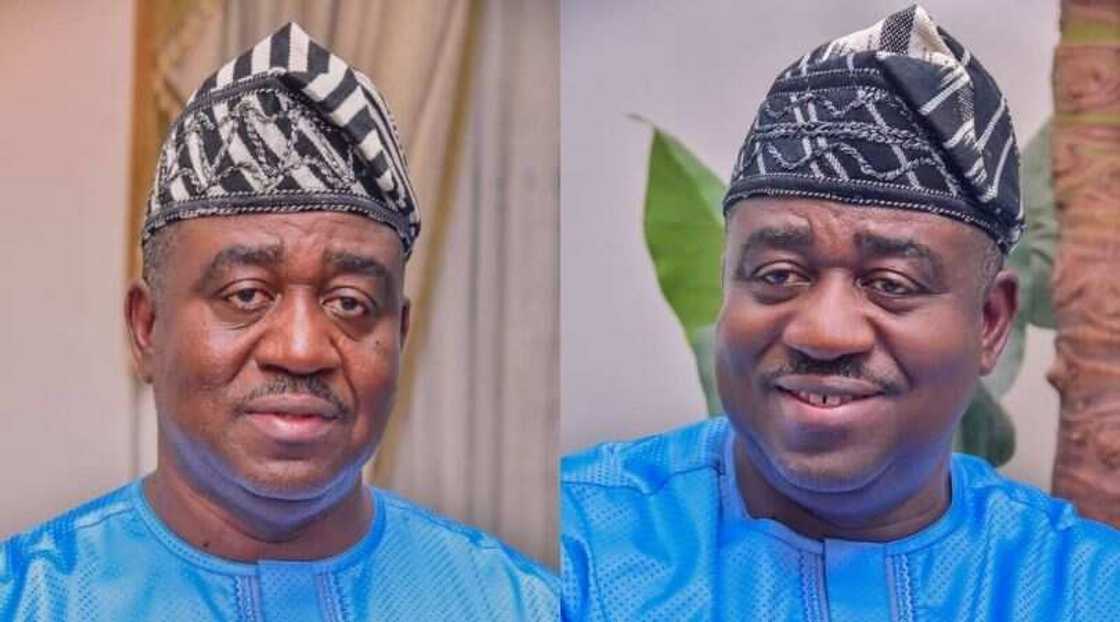
Source: Facebook
On the whole, a team of consultants engaged by the committee had undertaken a thorough appraisal of several industry issues consequent upon which a diagnostic report which included recommendations on the way forward was submitted to the committee for consideration. The recommendations were reviewed by the committee and largely formed the basis of the Electricity Bill, 2022 which scaled through second reading in the Senate and is now the subject of further legislative scrutiny by the committee through a proposed two–day public hearing slated to take place on Monday 28th February and 1st March 2022 at the Senate wing of the National Assembly. In terms of the structure, the bill is made up of 213 clauses subdivided into XXI parts and five schedules.
Since the second reading of the bill and its consequent release to critical stakeholders and members of the general public ahead of the scheduled public hearing, it has become necessary to undertake an analysis of the overarching objectives of the bill, its structure, key novel provisions, and related issues with a view to enhancing understanding of the bill by invited stakeholders and its likely impact on the fortunes of the Nigerian power sector.
With respect to its objectives, clause 1 of the bill provides that bill seeks to among other things - repeal the Electric Power Sector Reform Act, 2005, consolidate all legislations in Nigerian Electricity Supply Industry (NESI) and enact an omnibus Electricity Act for the industry to provide the ideal legal and institutional framework that will regulate the post-privatization phase of the industry in Nigeria. The bill also seeks to provide the framework that would attract more investors to leverage on the modest gains of the privatized electricity industry in Nigeria to accelerate growth in power generation capacity and improve utilization of generated power through increased investment in new technologies that that would enhance transmission and distribution of generated power and minimize aggregate value chain loses.
PAY ATTENTION: Join Legit.ng Telegram channel! Never miss important updates!
Consistent with the stated objectives of the bill and bearing in mind the need to address post-privatization challenges, one of the novel provisions under Clause 2(2) of the bill is that for the first time there is proposal for a statutory backing to the powers of state governments to build generation plants, transmission and distribution lines in areas not covered by the national grid. This provision is not merely a reenactment of the provisions of Section 4, paragraphs 13 and 14, Part II, Second Schedule to the Constitution of the Federal Republic of Nigeria, 1999 (as amended) but goes further to provide for areas of collaboration between state governments and the federal government in order to power areas where there is in fact grid presence but no supply.
Furthermore, the Bill for the first time under clauses 3(1) and 4 seeks to give statutory backing to the preparation and implementation of an integrated resource plan for the NESI through the National Integrated Electricity Policy and Strategic Implementation Plan (NIEPSIP) covering areas stated in the Bill and such other areas that the federal government may determine as requiring policy direction. It is proposed that the federal government through the federal ministry of power shall within one year from the commencement of the Electricity Act, prepare and publish in a federal gazette, a NIEPSIP in consultation with relevant government authorities as defined under the bill. The NIEPSIP is to be reviewed or revised every five years or within such a reasonable timeframe as the minister of power may determine. This provision is intended to address the problem of policy lull or gaps in the NESI.
To entrench the independence and autonomy of the NERC as the apex regulator in the NESI, Clause 5 of the bill expressly provides the supervisory powers of the minister of power over the NERC including general policy directions on overall system planning and coordination with a proviso that such powers to be exercised by the minister shall not be in conflict with the provisions of the Constitution, the bill or any other act of the National Assembly in relation to electricity. On the part of the ministry of power, the bill further provides under Clause 5 (4) that the ministry of power in discharging its functions shall be guided by the provisions of the Constitution, extant policies and implementation plans as well as the provisions of the Bill or any other act of the National Assembly relating to the ministry’s function. In the same vein, the oversight responsibility of the National Assembly in the NESI is expressly stated to be subject to the provisions of the constitution among other provisions.
On the need for the harmonization of the roles of regulators in the NESI and their respective legislations, it is must be noted that under part V while the NERC retains its preeminent regulatory powers in the NESI, other enactments such as the Nigerian Electricity Management Services Agency (NEMSA) and the Hydroelectric Power Producing Areas Development Commission (HYPPADEC) establishment Acts have been consolidated and codified under the Bill. To further streamline the roles of NERC and NEMSA in the NESI, the powers of electrical inspection and appointment of electrical inspector have been domiciled in NEMSA bearing in mind the latter’s statutory core mandate in the enforcement of technical standards and regulations; inspection, testing, and certification of all categories of electrical installations. The overall intendment of these provisions is to align regulatory responsibilities and ensure clarity of statutory roles for ease of compliance by operators.
Again to lay to rest controversies surrounding the privatization of power assets which took place pursuant to the provisions of the Electric Power Sector Reform Act, 2005 (EPSRA), Clause 7 recognizes the legal validity of the reform of the NESI from its previous monopolistic arrangement under the defunct National Electric Power Authority (NEPA) to the privatized phase involving the physical unbundling of the NEPA into eighteen companies and transfer of assets and liabilities to the Power Holding Company of Nigeria (PHCN) and subsequent licensing of 18 successor companies etc. This provision is without prejudice to the savings and transitional provisions contained in clauses 210 and 211 of the Bill which essentially preserves the status quo ante that is not in conflict with the provisions of the Bill.

Read also
Support lawmakers' push for youth empowerment through NYSC trust fund bill, group to Nigerians
To better appreciate the importance of this provision, it is may be appropriate to recall that prior to the introduction of this Bill, there were agitations in some quarters for the reversal of the privatization exercise even though the licensed private companies that emerged from the privatization exercise are guided by the terms of their licenses and Performance Agreements. Nigerian courts are also yet to understand the status of these companies and the nature of transactions for the sale and purchase of electricity and ancillary services made possible under the current privatized electricity industry. See for instance the recent decision of the Court of Appeal in the case of Jos Electricity Distribution Company v.Barr. Dasat Lengnan John ( 2020) 1 E.L.R at pg. 2 where the Court of Appeal, Jos Division held that the relationship between JEDCO, the Appellant in the instant case, and Barr Lengnan, the Respondent, is that of Utility Service Provider-Consumer, not contractual and the appellant owes public duty to its consumers. In this context, therefore, it became necessary to put in place such a provision as contained under Clause 7 of the Bill.
Disclaimer: The views and opinions expressed here are those of the author and do not necessarily reflect the official policy or position of Legit.ng.
Your own opinion articles are welcome at info@corp.legit.ng— drop an email telling us what you want to write about and why. More details in Legit.ng’s step-by-step guide for guest contributors.
Contact us if you have any feedback, suggestions, complaints, or compliments.
Source: Legit.ng


